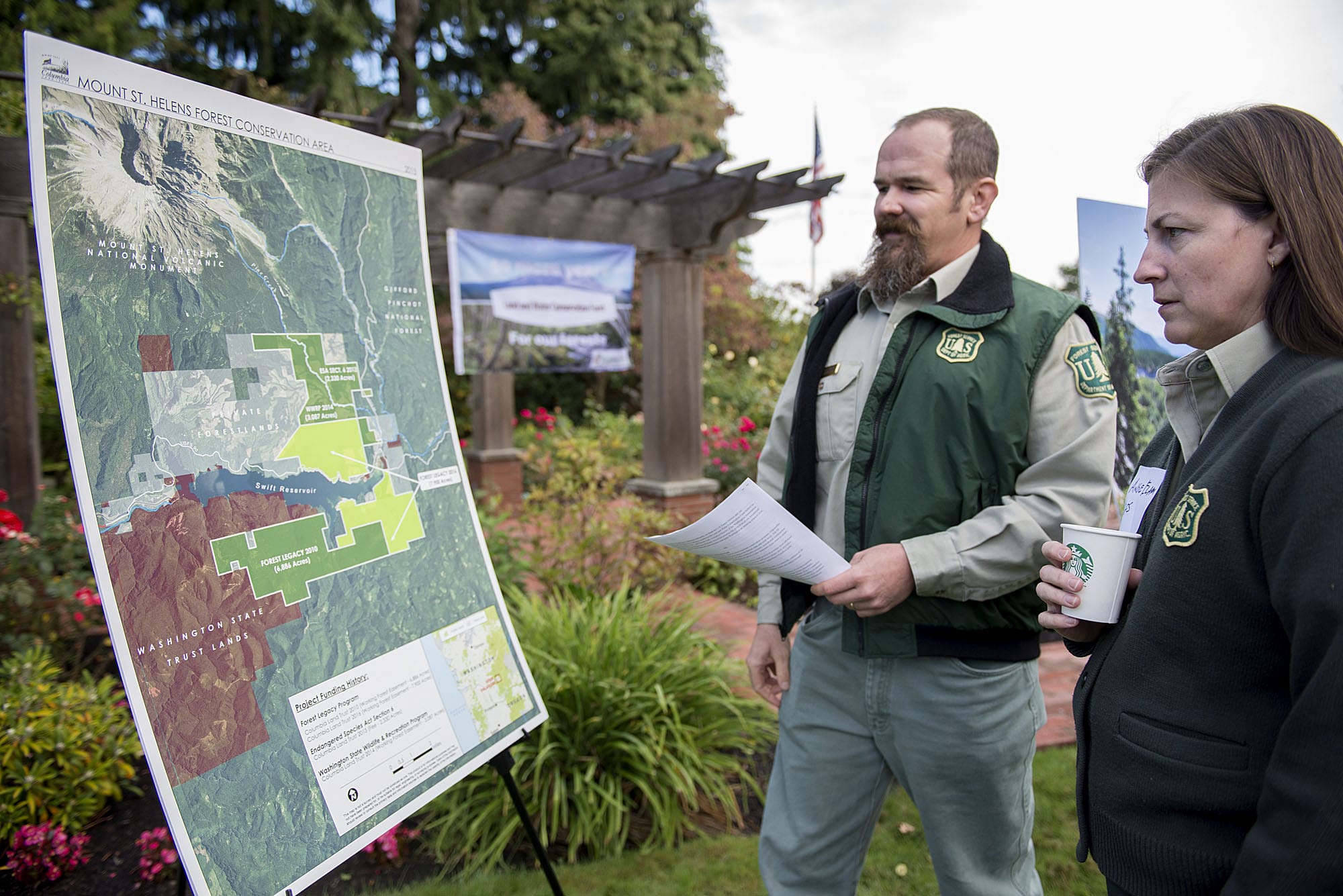When an 11th-hour funding bill kept the federal government from shutting down this week, it didn’t keep every federal program intact.
In approving the measure, Congress failed to reauthorize the Land and Water Conservation Fund. Environmental groups, outdoor advocates and others reacted with dismay to the news, noting the program has preserved land for public use for 50 years. It’s also helped fund numerous projects in the Northwest — including Clark County.
“It’s been a source that we’ve always looked to to find funds for local park projects,” said Bill Dygert, a parks and recreation consultant who has worked on many projects over the years. “It’s been a key part of the funding equation for our parks system.”
In 2011, the Land and Water Conservation Fund helped the city of Camas and other partners purchase the land that became Fallen Leaf Lake Park near Lacamas Lake. The fund contributed $500,000 of the $2.05 million used to the purchase the park. Other money came from state and local sources.
“We needed each one of those funding elements,” Dygert said. “It’s a difference maker.”
Fallen Leaf Lake Park is far from the only site in the area that has benefited from the Land and Water Conservation Fund, advocates say. The list includes dozens in Clark County. The fund has also supported an ongoing conservation effort near Mount St. Helens, spearheaded by Columbia Land Trust.
The project’s fourth phase, still in the works, is highly rated and in the queue for support from the fund through its Forest Legacy Program, said Cherie Kearney, forestry initiative director with the land trust.
Losing the program would ripple beyond just the Northwest, Kearney said.
“There’s just the big picture,” Kearney said. “The nation’s treasures are largely funded by the Land and Water Conservation Fund.”
The fund, created by Congress in 1965, is supported by revenues from offshore oil and gas drilling. The program is supposed to set aside $900 million for the fund each year, but much of that money is diverted to other uses, according to the Land and Water Conservation Fund Coalition.
Despite the gridlock in Washington, D.C., threatening to derail the fund, it does enjoy bipartisan support from members of Washington state’s congressional delegation.
U.S. Sen. Maria Cantwell, D-Edmonds, introduced legislation to permanently fund the Land and Water Conservation Fund.
“From Mount Rainier to the San Juan Islands to Colville National Forest, Washington’s great outdoors are important to our economy and our way of life — and the LWCF plays a critical role,” Cantwell said in a statement.
Cantwell said she will continue to push the measure and “use every opportunity” to ensure it’s fully funded in the upcoming months.
U.S. Sen. Patty Murray, D-Seattle, has thrown her support by Cantwell’s measure, calling the fund the best tool the nation has to “empower our local communities, to increase public access to open space, conserve forest, protect wilderness areas, create jobs, and strengthen the economy.”
And although, U.S. Rep. Jaime Herrera Beutler, R-Camas, doesn’t support permanent reauthorization for the fund, she is in favor of ensuring the fund remains intact.
Herrera Beutler said she will continue to push for its use on “projects that are supported by the local community and maintain the forest management and recreational roles of the land,” she said.
As a member of the Appropriations Committee, she voiced her frustration at Congress’ move to only pass a three-month budget extension.






